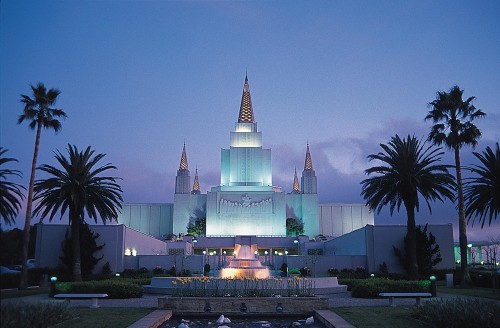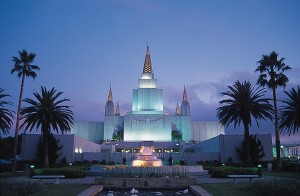In the strictest sense, the word exmormon simply refers to someone who chose to end his membership in the Church of Jesus Christ of Latter-day Saints. Members of the Church are sometimes referred to informally as Mormons, and so an ex-mormon is a former Mormon. However, the term is more commonly used to refer not to people who simply left and moved on, but to those who then devote themselves to attacking the church.
There are many reasons a person might do this. While most people who leave a religion—any religion—simply join a new one or abandon organized religion and go about their new lives quietly, a few feel a need to attack and to demonstrate hatred for the life they left behind. Some who do this had a disagreement with another member or with a leader. Some objected to counsel given to them by a leader. These people find themselves unable or unwilling to forgive or to resolve the matter in an amicable and Christ-like manner and as a result, organize their new life around a pattern of revenge. Some are unhappy at the church’s unwillingness to let fads and fashion dictate truth, and are resentful that the Church has chosen not to make their favorite sins acceptable. Others feel uncertain about their decision and feel the only way to justify their choice is to “prove” the church is untrue. They feel if they can find or invent enough negatives and convince others to agree with them, it will help to justify their actions, even though the only people they need to convince are themselves and God.Frequently their behavior demonstrates itself in repeating very old and usually disproven arguments to those who have not taken the time to research them, in hopes of bringing other religious people into their fold. They sometimes hold the Book of Mormon to a different standard than they hold the Bible. For instance, they write long papers on the lack of scientific evidence for horses in the Americas in ancient times, while ignoring the lack of scientific evidence for lions in the Biblical lands. These arguments frequently confuse faith and science. Generally, the arguments developed, with minor tweaks, back in the early days of the church and regenerate each generation.
The majority of religious people are not especially interested in attacking Mormons and so these numbers, while working hard to maintain a loud presence, really make up a very small segment of the religious population or even the former Mormon population.
There is a story in the Book of Mormon about a prophet named Lehi and his son Nephi, who also became a prophet. Lehi saw a vision that was later shown to Nephi, who recorded it in the early chapters of the book. In this vision, there was a beautiful tree. Lehi understood the tree’s fruit was highly desirable and eating it will bring great joy. He invited his family to eat the fruit, and the righteous family members did, but the unrighteous chose not to partake.
There is a river running toward the tree, and a straight and narrow path beside it. Along the path is an iron rod. As multitudes of people strove to reach the tree, a mist of darkness arose, making it difficult for people to see how to reach the tree. However, those who held onto the rod—which represents God’s word—reached the tree safely. Those who did not were lost.
Some ignored the rod or got tired of holding on and let go; these fell away and were lost. Others held onto the rod and reached the tree. They tasted it, but were unable somehow to experience the joy others felt upon tasting it. This is because they looked around to see how others were reacting to all this. Those people noted a large and spacious building nearby, filled with people in expensive, elegant clothing. The people in the building were laughing, mocking, and harassing those who ate the fruit. Of course, some were secure enough to trust their own judgment and wisdom and they ignored the mockers, enjoying the full benefits of the fruit, which represented God’s love. Others, though, could not tune out the mockers. These people were embarrassed at being laughed at, and listened to the words of the mockers. They wandered off the path and went back to their former lives or chose new ones, forgetting or ignoring the goal they had once worked to achieve. However, some simply could not just move on. They went to the building and joined the mockers in a life filled with the emptiness of contention and anger.
This is, in many ways, representative of the exmormon world. Mormons feel sorrow for those who leave. They are Mormons because they believe it is the straight and narrow road to Christ. Those who leave are not usually overwhelmingly obsessed with what they left behind, although they often have a sense of what they have lost if they have maintained contact with the Spirit. Most Christians are too busy living lives of Christian service and sharing their own beliefs to worry too much about the teachings of others. Those who abandoned religion completely generally just move on to a secular life.
It is those who hang out in the great and spacious building and devote their lives to mocking and attacking who generally receive the title of exmormon. Rather than focusing on the love and service Christ taught us to live by, they remain trapped in a world of anger and contention. Paul warned:
8 This is a faithful saying, and these things I will that thou affirm constantly, that they which have believed in God might be careful to maintain good works. These things are good and profitable unto men.
9 But avoid foolish questions, and genealogies, and contentions, and strivings about the law; for they are unprofitable and vain. (See Titus 3)
The Church hopes former members will allow healing to enter into their hearts and longs for their return.
In 1985, at Christmas time, the leaders of the church prepared a special invitation to those who had left the Church. It read in part:
We are aware of some who are inactive, of others who have become critical and are prone to find fault, and of those who have been disfellowshipped or excommunicated because of serious transgressions.
To all such we reach out in love. We are anxious to forgive in the spirit of Him who said: “I, the Lord, will forgive whom I will forgive, but of you it is required to forgive all men.” (D&C 64:10.)
We encourage Church members to forgive those who may have wronged them. To those who have ceased activity and to those who have become critical, we say, “Come back. Come back and feast at the table of the Lord, and taste again the sweet and satisfying fruits of fellowship with the Saints.”
We are confident that many have longed to return, but have felt awkward about doing so. We assure you that you will find open arms to receive you and willing hands to assist you. (See News of the Church,” Ensign, Mar 1986, 82–88.)


